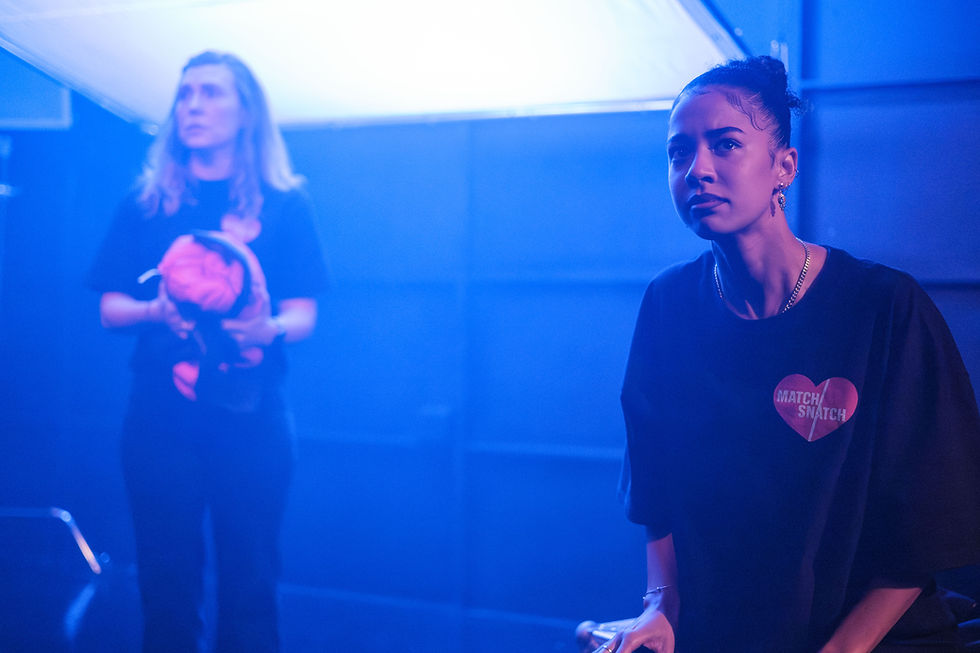The Edit - 25A Belvoir
- Kate Gaul
- Oct 15
- 2 min read

The Edit
25A Belvoir
Watching The Edit brought to mind Lauren Berlant’s notion of “cruel optimism” — the idea that something you desire can become the very thing that prevents your flourishing. It’s an apt lens for Gabrielle Scawthorn’s sharp and unsettling play about reality television and the illusions it sells.
Set in the UK, The Edit follows Nia, a contestant on the dating show Match or Snatch, and Jess, a savvy content creator determined to capitalise on the chaos. The two women begin as allies, chasing fame and validation, but when a traumatic incident shatters their bond, questions of control, consent, and complicity come crashing to the surface.
Scawthorn — who previously investigated the mental toll of reality TV in her acclaimed podcast Back from Reality — writes and directs with precision and bite. The script exposes the industry’s dark mechanics: the manufactured intimacy, the commodified trauma, the seductive cruelty that keeps audiences glued to the screen.
Iolanthe (last seen in Griffin’s Sistren) delivers a breakout performance as Nia, charting the character’s transformation from ambition to disillusionment with emotional clarity. Matilda Ridgway (Furious Mattress) brings a magnetic confidence to Jess, whose entrepreneurial bravado masks deep vulnerability. Producer Matthew Lee assembles a strong creative team, with standout work from Ruby Jenkins (set design) and Madeleine Picard (sound design).
At times, the production elements feel overextended — particularly the interludes of elaborate lighting and visual effects that momentarily slow the show’s snap and tension. A few judicious cuts could tighten its impact. Still, The Edit remains a fierce and absorbing 90 minutes: a mirror held up to a culture where exposure masquerades as empowerment.
As part of Belvoir’s 25A program, The Edit stands out for its polish, intelligence, and provocation. Scawthorn’s work dissects the ethics of entertainment with empathy and rigour — reminding us that while viewers can choose what to watch, the participants inside the frame often have far less control over how their stories are told.
Go see it.
Review by Kate Gaul
Image by Robert Cato



Comments